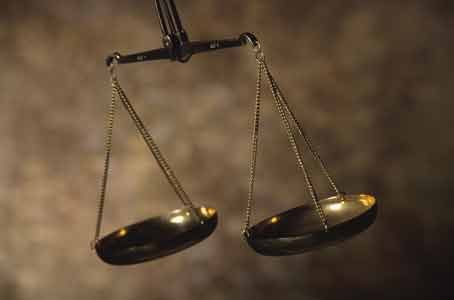(CNN) — I have a confession.
I don’t like jury selection.
Some lawyers love it. Several excel at it. Many consider the case won or lost at jury selection.
That may be true. It doesn’t change the fact that it’s just not my favorite part of the trial process — and it’s now in the spotlight because the U.S. Supreme Court is considering a case (Foster v. Chatman) about whether decisions to reject potential jurors unconstitutionally affect a jury’s racial makeup.
The case also spotlights exactly why I’m not particularly fond of the process: Imagine that you are asked to play a game show that is timed like a speed chess match, which tests two primary “skills.” The first is your ability to blindly disagree in a knee-jerk fashion with whatever the opposing attorney wants — which is less a skill, and more of a reflex. The second “skill”? Your ability to leap to conclusions about people based upon your latent discriminatory personal opinions.
Remember, the latter is the very thing your parents raised you not to have, and now your client’s future depends in part on all your unsupported biases and snap judgments about complete strangers based primarily upon their appearance, attributes and origins. It’s a harrowing process, one that feels less like a criminal trial and more like “Hollywood Squares” — a very angry round of “Hollywood Squares.” On top of that, all these deductions and predictions about jurors are based on the scientific equivalent of astrology or alchemy.
Exception to the rule
That’s why the Supreme Court rule of Batson v. Kentucky is often misunderstood. It has come to be understood as a prohibition against racial discrimination. Batson is not really the “rule.” It’s more like the exception to the rule. The rule in jury selection is not “Don’t discriminate.” Instead the rule is: “Discriminate indiscriminately, discriminate wildly, for whatever reason you want, just don’t discriminate based on one thing: race.”
I’m not really alone in my skepticism, either. Justice Thurgood Marshall himself had doubts about Batson. Marshall wrote in a concurrence that Batson “will not end the racial discrimination that peremptories inject into the jury-selection process.” That goal could “be accomplished only by eliminating peremptory challenges entirely.”
He’s right. Peremptory challenges are a limited number of strikes each side can use to dismiss a juror without giving a reason. The very existence of “peremptories” arguably represents an unspoken judicial sanction of discrimination in jury selection.
At the heart of the Foster case is this issue: if Batson prohibits using these secret peremptories for racial discrimination, how do we prove that the prosecution (or defense) discriminated if the conduct occurred almost entirely in the secret thoughts of the attorney?
In Foster, the prosecution ostensibly offered nondiscriminatory reasons for rejecting jurors, but the recently obtained handwritten notes of the prosecutor at trial suggested the prosecution really employed a code to categorize and exclude African-Americans. So then the question becomes more complicated, and socially universal at the same time: Does a person discriminate based on race when they discriminate for both racial reasons and also nonracial reasons?
Keep your notes
Long ago I asked a veteran attorney how to deal with Batson challenges. His response was simple: “Keep detailed notes.” I soon found out why when I was “Batson-ed” myself.
It’s a three-step process: The defendant first must make a prima facie showing of discrimination. If that showing is made, the prosecution must offer race-neutral explanations for the strikes in question. After that, the judge must determine if the improper racial motivation invalidates the juror strike.
The explanation requires attorneys to essentially reveal their handwritten notes aloud in court. This awkward process had me thinking early on that it would be incredibly easy to just write down and read aloud whatever nondiscriminatory reason the attorney wanted, and keep the improper ones locked in his brain.
Unfortunately, my handwritten trial notes are often festooned with doodles of three-dimensional cubes, and superhero insignias — the product of a mind at work, but completely useless in defending a Batson challenge. Overall, though, the entire Batson challenge process feels silly, because the attorney is essentially saying: “No Judge, I’m not discriminating against this juror because of his status as a Latino, I’m discriminating against him because of his job and his personal relationships,” or some other Archie Bunker-esque, “Confederacy of Dunces”-like stereotype about his identity or surface appearance.
The Foster case is unique because it may confirm factually what lawyers and the public have known for years: Requiring people to conjure up race-neutral reasons for discrimination does not prevent discrimination. Batson is not really the problem, either. Rather it’s a judicial attempt to remedy the problem created by peremptories themselves.
Eliminate peremptory challenges?
Some scholars argue that we should eliminate peremptory challenges altogether, because any discrimination, whether based on suspect or nonsuspect categories, is degrading.
Then again, some discrimination of jurors is deemed necessary. As much as it would help a defense attorney to keep a juror who has an open, passionate disdain for police, it might offend notions of fair play to keep that juror on the case.
Once again, the law finds itself stuck in a conundrum. The law should be against disparate treatment of citizens based upon their surface attributes, but it must also preserve the right to a fair trial. As it is, our system of jury selection permits almost every bias imaginable. As long as the bias isn’t racial, it’s likely OK.
When part of that process — the peremptory challenge — is institutionally shrouded in secrecy, we shouldn’t be shocked on the rare occasion when the discovery of attorney notes reveals concealed discrimination. We should be more shocked that someone actually put it down on paper.
Danny Cevallos is a CNN Legal Analyst and a personal injury and criminal defense attorney practicing in Pennsylvania and the U.S. Virgin Islands. Follow him on Twitter @CevallosLaw. The opinions expressed in this commentary are solely his.
